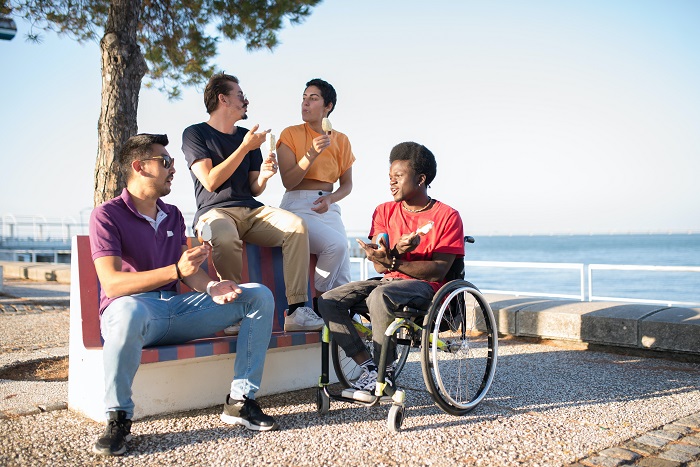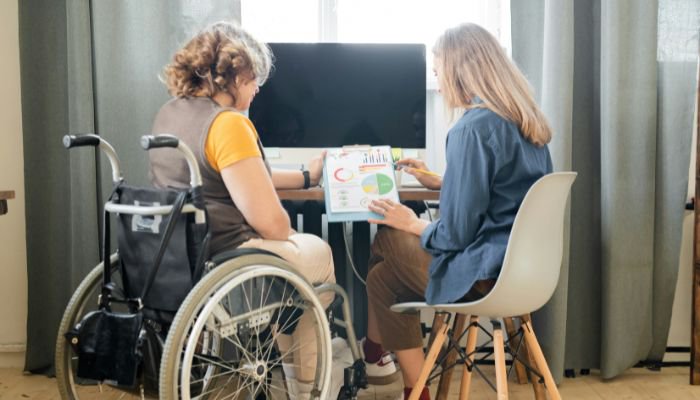
The most important thing you and your informal supports need to know when entering the National Disability Insurance Scheme (NDIS) or preparing for a planning meeting is that goals are key.
They help to inform what funding you’ll receive and how providers will provide services to you, and they offer an objective measure of your achievements and how well your plan has been used.
We recently spoke with support coordinator, Elizabeth Hickey (AFA Support Coordination) about the importance of goal setting in the NDIS.
Here’s what Elizabeth told us.
The most important thing a participant and their informal supports need to know when entering the NDIS or preparing for a planning meeting is that goals are key.
A participant’s NDIS goals are the key to every part of the NDIS. They help to inform what funding you will receive and how providers will provide services, and they provide a measure as to how well a plan has been used and what achievements have been made.
For this reason, making sure NDIS goals are considered, well written and represent the wishes and needs of a participant is the most important part of the planning process.
When looking at the NDIS Act and how the NDIS manages goals, there are a number of things participants need to know.
When considering your goals, there are a number of different components that go into making a good one.
When providing your goals, you can give the planner lots of information that will help to inform how you will make it work for you.
The goal
A good example of a goal may be: ‘For Jimmy to be able to communicate his needs, wants and wishes at home, in the community and at school/work in a safe way….’.
How will I achieve my goal?
You can provide information to the planner on how you plan to achieve the goal, such as:
Who will help me achieve my goal?
This is where you can provide information about who you think will help you achieve your goals.
Some examples are:
If you are stuck for what your goals should be, there is a great way to figure out where you need help. Have a notepad and pen handy, and every time you need assistance or find something hard or avoid an activity, write the task down. This can be done over a couple of days or a ‘typical week’ (also think about times that are not typical).
From that list, break things down into the different focus areas (e.g. mobility, daily living, communication) and then use that list to help you see what your goal needs to focus on.
The best bit of doing the list is that you can also use that as the basis for ‘a day in the life of the participant’, which can be included in your planning documentation and gives the planner a great overview of who you are and what your day looks like.
Implementing your goals
Once an NDIS plan and goals are approved, implementation starts, and the people supporting you should develop a plan and budget that utilises your NDIS funding.
Your goals should inform all supports – e.g. a goal around being safe and independent could include everything from cleaning and food preparation, all the way to participating in community activities. Your goals should also inform how you are going to measure achievement – the goal itself shouldn’t identify the achievements in most cases, but a group of achievements should build to achieve or work on achieving a goal. For example:
Goal = young person moving out of home and being independent
Group of achievements = developing skills for independent living (e.g. cooking, cleaning and money management), plan development and connection to services to help access housing, skill development to get a job, employment support to maintain regular income etc.
Reviewing your goals
At the end of your NDIS plan it is a great idea to review your goals. Most of the time a goal evolves – typically they start as a focus on something such as ‘securing safe and secure housing’ and evolve to become ‘maintain my home as independently and safely as possible’. Both goals require many of the same supports, but also require so many small parts to achieve.
Having both your informal and formal supports work with you to identify achievements and setbacks during a plan, along with outlining the changes that have happened, helps to document your journey.
At the end of the day, the biggest thing to remember is an NDIS goal shouldn’t be something small and disability specific, it should be a goal that everyone aspires to, as we are all part of the community, and all have aspirations to be the most amazing humans possible.
While I am not an NDIS participant, I share so many of the same goals in my life as my participants – I have goals around maintaining employment, having a safe home, being able to participate in daily life in a safe way etc.
I believe everyone has a right to achieve the same things – the only difference is how they are achieved!



